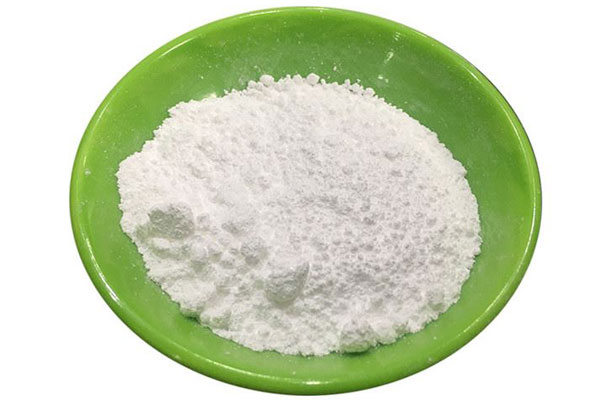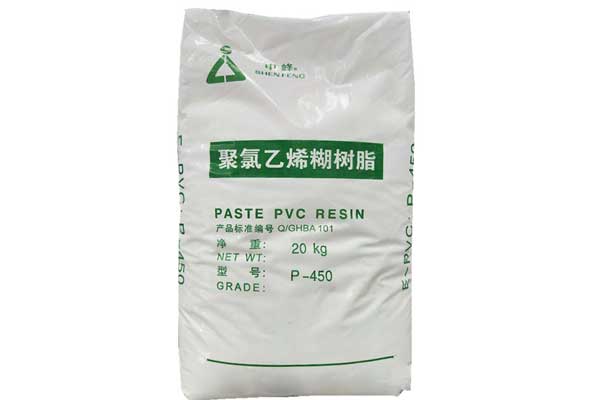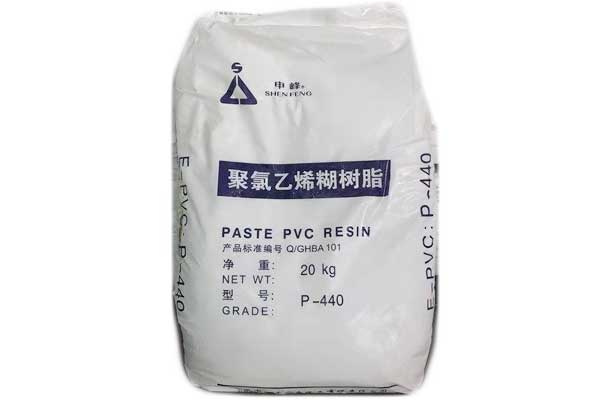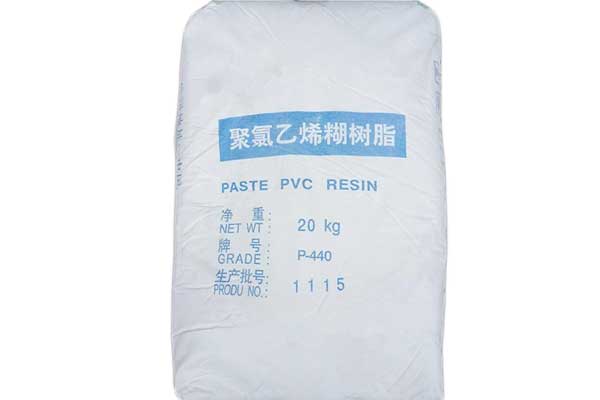Home » PVC Paste Resin

Get PVC Paste Resin Price
PVC paste resin, as a unique type of PVC resin, the particle size range is generally 0.1-0.2μm. It is usually suitbale for producing some special products. To sum up, paste PVC can be widely used in the fields of artificial leather, decorative materials, floor leather, wall paper, industrial conveyor belts, sports venues, coatings, adhesives, toys, disposable medical gloves, daily decorative materials, electrical instruments and tools, and many other fields. If you are planning to purchase polyvinyl chloride paste resin, then Chemate will be your ideal choice. As the reliable PVC paste resin supplier, we are always ready to serve our customers. What’s more, we can always ensure the best PVC paste resin price. Feel free to inquiry us now.



Technical Specifications of PVC Paste Resin
| Item | P-440 | P-450 |
| Average polymerization degree | 1450±200 | 1000±150 |
| Number of impurity particles ≤ | 20 | 20 |
| Volatile %≤ | 0.40 | 0.40 |
| Brookfield viscosity 10-3Pa.S (50r/min, Resin : DOP=100:60) ≤ | 5000 | 7000 |
| Sieving rate (greater 0.063μ m mesh) %≤ | 1.0 | 1.0 |
| VCM Residue (μg/g) ≤ | 10 | 10 |
Would Like The Quotation
Leave more about your requirements, such as, brands, models, quantity, package, country, etc.
More Introduction About Paste PVC Resin
PVC paste resin, with another name of PVC emulsion resin, is fine powder and immobility. Its preparing method is emulsion and micro-suspension method. Mix polyvinyl chloride paste resin with the plasticizer and then stir to form a stable suspension. And then the suspension will be made into PVC paste, or PVC plastisol, PVC sol. Paste PVC is named after its highly dispersible powder used for paste processing. Because of its excellent paste-forming properties and good dispersion properties, it is mainly used in the field of soft materials of PVC resin.
Compared with PVC suspension resin, Paste PVC has the following advantages:
- The processing equipment is cheap.
- The mold is simple and cheap.
- It can be made into a special shape.
- It is easy to foam.
- The products has a low heating frequency, and can be produced in small quantities and with multiple varieties.
Polyvinyl chloride paste resin has fine particle size and immobility. So it is usually mixed with the plasticizer, such as DOP plasticizer, to form a stable suspension after stirring. Then the PVC plastisol or PVC sol produced can be directly used to process into final products. In the process of paste making, add various fillers, diluents, heat stabilizers, foaming agents and light stabilizers according to the needs of different products.
PVC paste resin has been widely used in the production of artificial leather, gloves, wallpaper, adhesives, automotive sealants, steel coating, coatings, advanced footwear and other fields.
Used in the processing of drop plastic cotton products. Using various knitted cotton fabrics and various blended base fabrics as raw materials, and then adopting the drop plastic process to make cotton plastic products. Small white or colored PVC particles drip on the surface. This cotton-plastic cloth has excellent wear resistance, non-slip, heat insulation, insulation and perspiration properties. The gloves made are the replacement products of various knitted, nylon, canvas and labor insurance gloves.
Used in the processing of plastic products in the automotive industry. The plastisol prepared with PVC paste resin is suitable for making car seat armrests, dashboard skins, steering wheel skins and other automotive interior decoration parts through sugar molding, rotational molding, dip molding and other processes. These interior trim parts can faithfully reproduce the delicate mold surface patterns and configurations. And all have good heat resistance, impact resistance and tear resistance.
At present, the industrial production methods of PVC paste resin mainly include emulsion polymerization, micro-suspension polymerization and mixed micro-suspension.
Emulsion polymerization
Emulsion polymerization formulations mainly include vinyl chloride VCM, water, water-soluble initiators and emulsifiers. In this method, vinyl chloride and water under the action of water-soluble initiator and emulsifier to obtain polyvinyl chloride paste resin. Emulsion polymerization has strict requirements on stirring. The commonly used initiator is water-soluble persulfate.
In general, the particle size of the latex obtained by emulsion polymerization is less than 0.2μm. In order to achieve the purpose of increasing the particle size of the latex, an emulsion seed polymerization method was developed to increase the particle size of the latex to about 1.0μm. But only a reasonable particle size is not enough. It is also necessary to have an appropriate particle size distribution. In this way, Factory can obtain PVC paste resin with excellent performance.
Emulsifiers are important in emulsion polymerization. The amount used determines the particle number of the initiator. At the same time, it plays a major role in the final latex particle size. Especially in seed generation, the use of high initiation rate and low concentration of emulsifier can narrow the size distribution of latex particles. The latex particle size and its distribution are the key to the production of PVC emulsion resin by emulsion method.
Microsuspension Polymerization
Firstly, homogenize part of vinyl chloride into a stable milky state by mechanical homogenization. And then polymerize to obtain PVC paste resin. This method must use oil-soluble initiators. The PVC paste resin produced by this method has excellent fluidity, relatively simple reaction, less emulsifier dosage, relatively stable product quality. A large particle size latex can be obtained by one polymerization. This method can improve both thermal stability and water resistance of the resin. In addition, the latex has the highest solid content, usually around 48%, and can even reach 50%, which reduces heat energy consumption. In the production process, it is necessary to pay attention to the selection of the appropriate composite emulsifier and particle modifier system. At the same time, the homogenization of the components of the polymerization system, the stirring speed, and the appropriate ratio of water to monomer are also important.
Mixed Microsuspension
Firstly, mix the seeds prepared by emulsion polymerization and the seeds prepared by micro-suspension polymerization. And then carry out the micro-suspension polymerization. The purpose of this method is to prepare PVC paste resin with large particle size and bimodal distribution.
The method has the following characteristics:
- The polymer is fed at one time without homogenization or only partial homogenization.
- The process is simple. Compared with emulsion polymerizationmethod, the process of continuously adding emulsifier is saved.
- The use of oil-soluble initiators is high safety, especially the use of redox system initiators. As long as adding one component to the reaction, workers can carry out the reaction.
- Low energy consumption. Because the solid content of latex is as high as 50%, it can save heat energy consumption.
- The latex has a large particle size and a bimodal distribution. It is very important to improve the processing and application performance of paste PVC.
About PVC Paste Resin Supplier - Chemate
-
Reliable & Professional Factory Agent
Focus in chemical export since 2003.
-
Quality assurance
ISO9001 international quality standard system certification, ISO14001 environmental management system certification, CE certification, GB/T28001 certification.
-
Excellent Pre-sales And After-sales Service
Variety complete, timely supply, reasonable price and excellent pre-sales and after-sales service.
-
Competitive price
As the agent of factory, we can ensure the most reasonable and competitive price. Feel free to inquiry us for the latest PVC paste resin price now, we will reply you quickly.
- Email: sales@chemategroup.com
- Tel: 0086-371-60921621
- Whatsapp: +86 18624832876
- Wechat: +86 18624832876
- ADD: NO.80 PUHUI ROAD,ZHENGZHOU CITY, HENAN PROVINCE, CHINA
